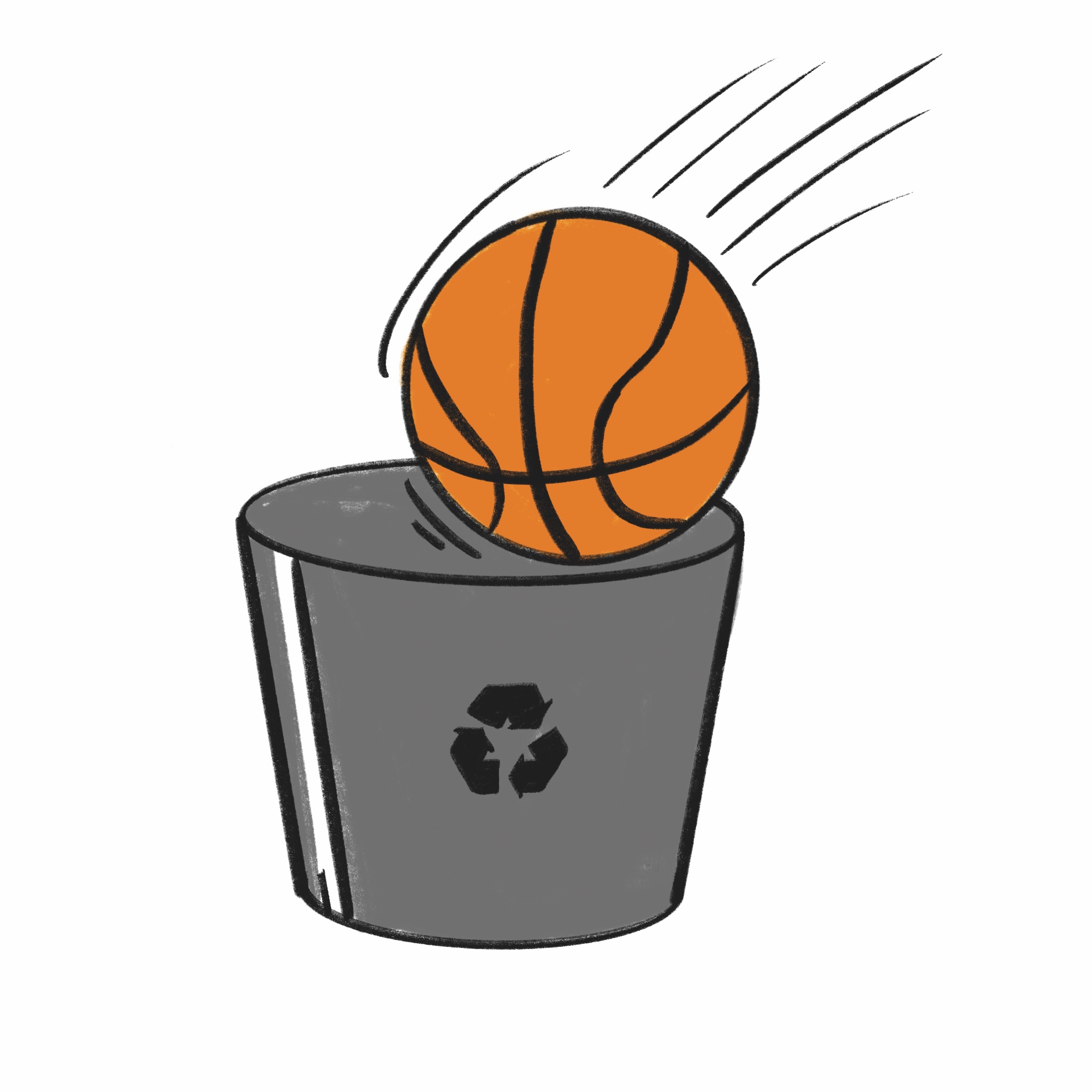Diaries of a student-athlete turned NARP
October 18, 2024
 Henry Abbott
Henry AbbottLast year around this time, I was waking up at 5:45 a.m. for bi-weekly morning lifts, driving 20 minutes to the Schiller Coastal Studies Center for three hour-plus long practices and traveling almost every weekend in the fall.
Now, I sleep in until at least 7 a.m. everyday, my longest commute is the walk from Baxter House to Farley Field House (where I park my car) and I spend my weekends hanging out with friends from all sorts of circles I hadn’t even met at this time last year.
So what changed? I quit the sailing team. Now, I must clarify a few things. First of all, I was not recruited to sail at Bowdoin; I walked on to the team. I dipped my toe into the recruitment process but decided it was not for me. After I got into Bowdoin, the coach emailed me asking if I wanted to sail, and I said yes. I must also clarify that, although I did leave the team, I have nothing but love for the sport of sailing and the people on the team, with the exception of Maizie Bartlett ’27 (kidding).
At the beginning of my first year, sailing offered me lots of things: close friends in my grade immediately upon arriving on campus, upperclassmen to get advice from and a chance to get out of Brunswick for regattas.
However, I soon realized that operating within the bubble of the sailing team was not healthy for me. I wanted to explore what Bowdoin as a campus and a community had to offer, not just the Schiller Coastal Studies Center.
So, in addition to sailing, I joined the Orient, started going to Model UN meetings, applied to be a tour guide and tried applying myself to everything I found interesting.
Because of my new extracurriculars on top of sailing and school, life became pretty hectic. I slept an average of five hours a night, lost my appetite and never hung out with friends. I slipped away from social life on the team, and realized I didn’t really have many people off the team I could confide in, either.
Furthermore, the sport that had always seemed to quell my anxiety now gave me heaps of dread. I became nauseous before heading to practice and found myself resenting the weekends because it meant I was away from Bowdoin, missing pivotal college experiences.
I knew something in my life had to change, and on a deep level I knew it was sailing, but that was a hard thing to let myself admit.
I decided to go to therapy to talk through everything and soon realized that sailing did not bring me the same type of joy it used to. While I do not know what exactly contributed to this change, it was a hard truth to face. Sailing had been a priority in my life since I was six years old, but at some point it had lost importance.
I have never gone through a more identity-rocking period than when I ultimately made the decision to quit. It took a lot to walk away from something I had dedicated basically my whole life to, even when it did not make me happy anymore. I had to summon a large dose of bravery to tell my coaches, friends and parents I was no longer on the team. Most tragically, I had to turn in my team-issued gear. I also had to rearrange my whole social life and make new friendships halfway through the year.
Yet in the period of time after I quit the team, my quality of life spiked. I became the most social I had ever been in my life, slept more, lost some academic stress and found I could meaningfully apply myself to my extracurriculars. It was clear I made the right decision.
However, I am still grappling with the ripple effects of my decision to quit. After being seen as an athlete for my entire life, I am now distilled down to a NARP (Non-Athletic Regular Person).
Yes, I know I made the conscious decision to become a NARP, and while some people may see quitting as taking the easy way out, I beg to differ. I respect the amount of effort athletes put into their sports. (Trust me, I’ve been there.) But at a certain point, I think recognizing that the lifestyle did not work for me showed the utmost commitment to myself. Whatever negative acronym someone wants to label me as cannot take away from the character-building experience I went through in leaving the team.
I share all of this because I felt isolated when it came to talking about this experience. Most people have a predetermined position before coming to school: student-athlete or student. It can be difficult when you switch sides. My life changed when I took that jump, and there were not many people I could talk to about it.
Hopefully this resonates with someone and opens up the conversation a little more so quitting doesn’t have such a negative stigma. While playing a sport or being highly committed to anything is incredibly admirable, let my story remind you that putting yourself first is more important than anything else.
Ava Arepally is a member of the Class of 2027.

Comments
Before submitting a comment, please review our comment policy. Some key points from the policy: